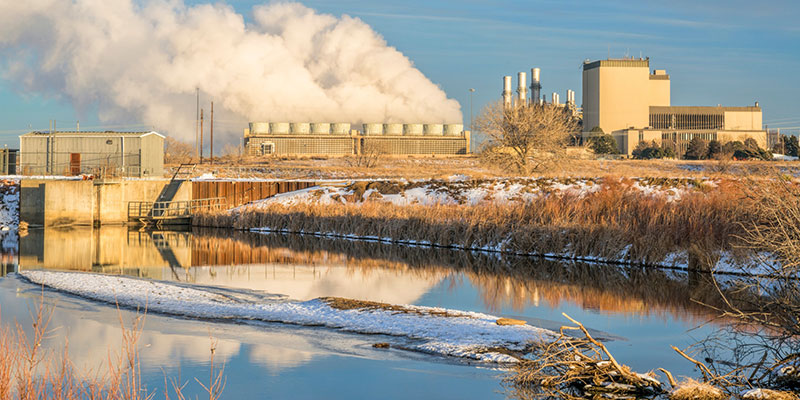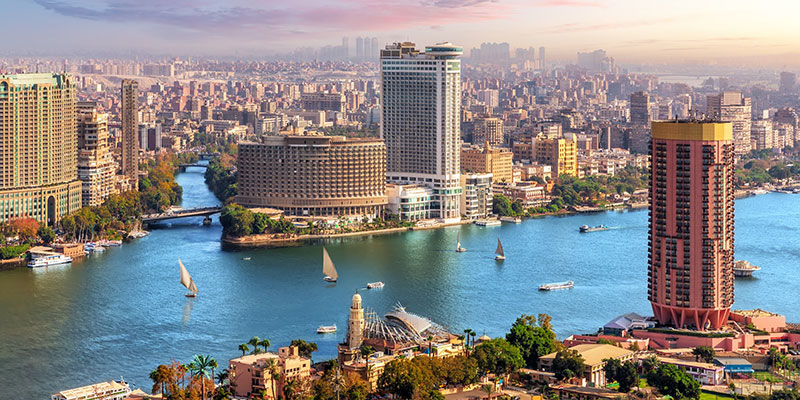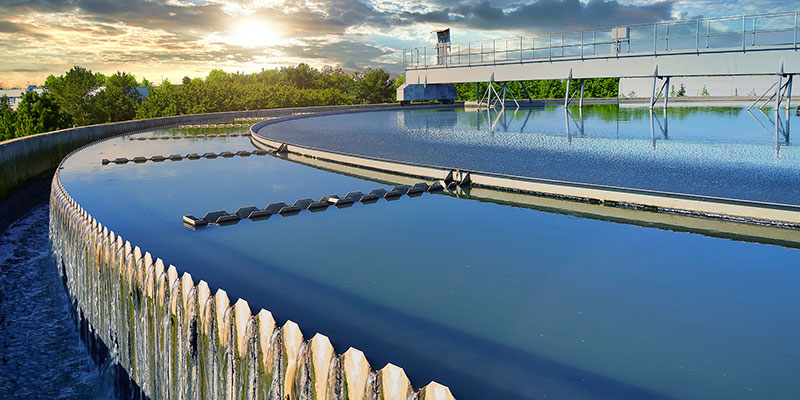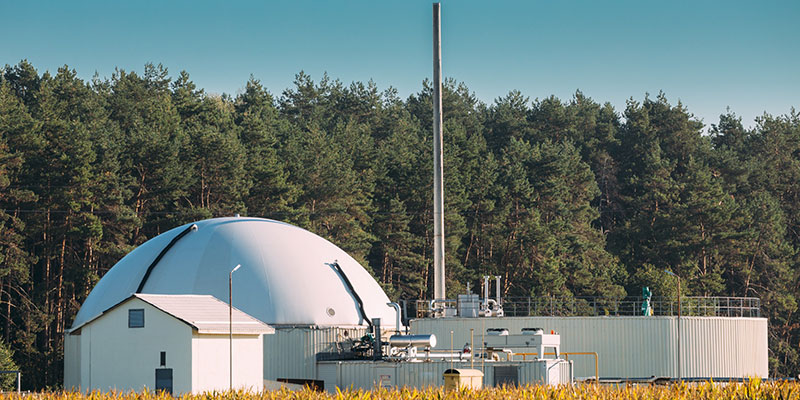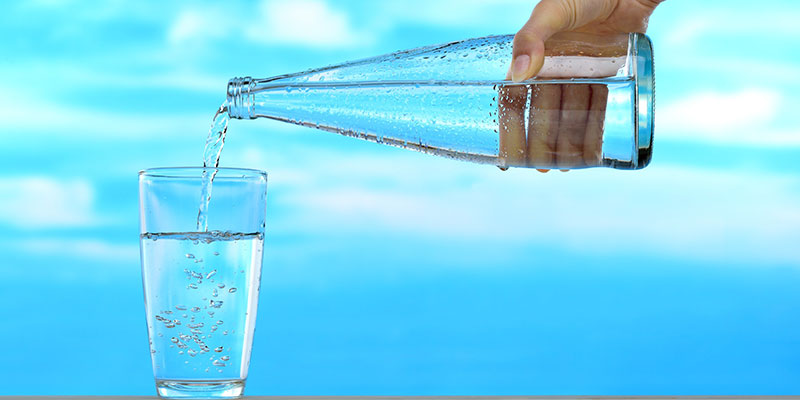While Fluence Sustainability Blog posts covered a lot of territory, a handful stood out as the most popular.
Which of this year’s Fluence Sustainability Blog posts attracted the most attention?
It has become a December tradition for Fluence to look back on the previous year’s Sustainability Blog posts. This past year, we covered a great deal of ground, but the following posts stood out for all the attention they generated.
Exploring Industrial Wastewater Treatment Methods and Technologies
One opportunity for the use of recycled industrial wastewater is for cooling at electrical generation plants.
Fluence covered a wide range of industrial wastewater treatment processes in “Exploring Industrial Wastewater Treatment Methods and Technologies.” We explored traditional methods such as physical, biological, and chemical treatments, delved into advanced technologies like membrane processes and advanced oxidation, and discussed sustainable approaches like waste-to-energy, An-MBR, and water reuse. The team managed to distill this comprehensive information into a single, succinct post, wrapping it up with an outlook for the future.
That’s something the world can use because this post is driving a great deal of traffic. We think it’s destined to remain perennially live and relevant year after year, and it might end up being one of our more popular pieces. If you’re searching for an economical overview of industrial wastewater treatment, Fluence has you covered.
The State of Desalination in Egypt
Proposed desalination plants in Egypt will be able to provide the water-stressed nation with additional water, reducing water extraction from the Nile.
With so much troubling water news in some other regions of the African continent, Egypt is a welcome success story as it faces the new water realities of the present and invests in the future. Interest in its inspiring water strategy is high if the number of people who read the blog post “The State of Desalination in Egypt” is any indication.
Egypt has already commissioned 70 seawater desalination plants with a combined capacity of 1.3 million m3/d, and it has plans to add 21 more to provide the nation with 8.8 million m3/d for crop irrigation and domestic use, reducing extraction from the Nile.
One of the new plants on the Mediterranean coast near the Nile delta is helping to make possible the planned, modern city of New Mansoura. Fluence seawater desalination can support resilience and rapid economic growth even where traditional water sources are inadequate or in jeopardy. Our post on Egyptian desalination was one of Fluence’s most popular of the year, and it’s no surprise. Stories of hope are always winners, and we’re proud to be a part of this one.
Top 3 Benefits of Recycling Wastewater
Economies and ecosystems are changing, and resilience will mean doing more with less water. Wastewater recycling does just that, making the most of every drop.
Recycling wastewater can now be done safely and efficiently for a host of vital nonpotable applications at a fraction of the cost of desalination. While some still turn their noses up at wastewater reuse, it’s just too valuable a lifeline to discard, and wasting precious drinking water on nonpotable applications is hard to justify in our age of water scarcity.
Our post “Top 3 Benefits of Recycling Wastewater” is our latest effort in promoting water reuse. We focused on water recycling’s ability to increase profits and efficiencies for business, its ability to shrink the need for transportation, and its strength in delivering climate resilience and sustainability. The post is one of the year’s most popular, drawing attention to this vital but neglected strategy to maximize every drop of water in an era of increasingly limited water supplies.
Types of Anaerobic Digesters
Biogas, a methane-rich mix of gases created by anaerobic digestion, can be burned to generate electricity or heat, or it can be processed further to produce a valuable source of renewable energy.
Anaerobic digestion is an idea whose time has come. Free, carbon-neutral energy, after all, is hard to pass up, and how many other wastewater treatment processes can handle the highest-strength organic loads while powering themselves with energy to spare? That is probably why so many are searching for information on digesters and finding our blog post “Types of Anaerobic Digesters.”
The post examines the way different styles of anaerobic digesters are classified by the type of organic waste they can treat, their operational mode, or their design configuration. Each type has its own advantage profile, and determining the right type of digester for a particular wastewater stream requires a great deal of experience and specialized knowledge. You may not be an expert after reading it, but many readers in 2023 found the overview presented in the post a useful primer.
The Latest Water and Wastewater Treatment Trends
With water scarcity increasing around the world, it’s more important than ever to make the most out of every drop.
Fluence discussed the growing concerns over sustainability in water sector practices, along with the rising demands to tackle issues like emerging contaminants, arsenic contamination, and saltwater intrusion into aquifers. At the same time, municipalities and industries are also facing increasingly more challenging regulatory frameworks. The post taps decentralization as an important trend for its ability to facilitate reuse and eliminate the need for miles of costly pipeline. Spoiler alert: Fluence has solutions to respond to all of the challenges we share in “The Latest Water and Wastewater Treatment Trends.”
Follow the Fluence Blog in 2024
Another year has come and gone, but bookmark us or subscribe to the blog because there’s a new year of Fluence Sustainability Blog posts in the pipeline. We look forward to bringing you news of the water sector and hydrosphere in the coming year along with solutions from the most innovative water company on the planet. Stay tuned in 2024!


